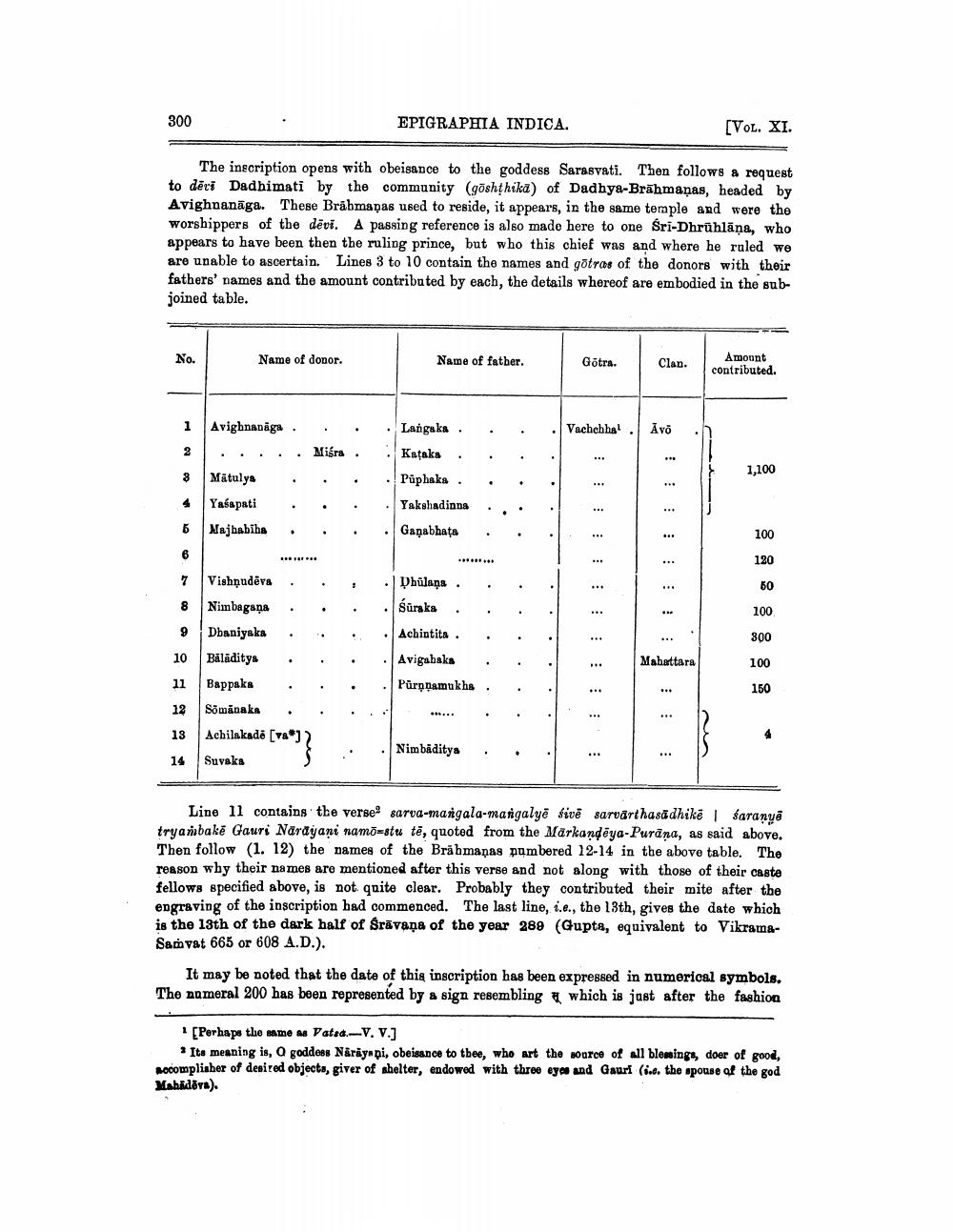________________
300
EPIGRAPHIA INDICA.
[Vol. XI.
The inscription opens with obeisance to the goddess Sarasvati. Then follows a request to dēri Dadhimati by the community (goshthika) of Dadhya-Brähmaņas, headed by Avighnanāga. These Brāhmaṇas used to reside, it appears, in the same teraple and were the worshippers of the devi. A passing reference is also made here to one Sri-Dhrühlāņa, who appears to have been then the ruling prince, but who this chief was and where he ruled we are unable to ascertain. Lines 3 to 10 contain the names and gotras of the donors with their fathers' names and the amount contributed by each, the details whereof are embodied in the subjoined table.
Name of donor.
Name of father
Götra.
Clan.
Amount contributed.
.
. Vachchha!.
Āvo
Avignanaga.
.. Matulya . Yaśapati Majhabiha .
. Mißra. . .
. . .
Langaka . Kataks . Püphaka. Yakshadinna Ganabhata
. . . .
.
,
Vishņudēva . Nimbagana . Dbaniyaks Balāditys Bappaks Sõmánaka . Achilakado (1 ) Suvaka
Dhūlaņa süraka . . Achintita . . Avigahaks Pürphamukhs.
10
•
13
.
.Nimbăditya
14
Line Il contains the verse sarva-mangala-mangalyē sivē sarvārthasādhikë | saranya tryanbaké Gauri Nardyani namo=stu tē, quoted from the Markandeya-Purana, as said above. Then follow (1. 12) the names of the Brahmaņas pambered 12-14 in the above table. The reason why their names are mentioned after this verse and not along with those of their caste fellows specified above, is not quite clear. Probably they contributed their mite after the engraving of the inscription bad commenced. The last line, i.e., the 13th, gives the date which is the 13th of the dark half of Śrävaņa of the year 289 (Gupta, equivalent to VikramaSamvat 665 or 608 A.D.).
It may be noted that the date of this inscription has been expressed in numerical symbols. The numeral 200 has been represented by a sign resembling which is just after the fashion
[Perhaps the same as Patsd..V. V.]
* Its meaning is, a goddess Näräynni, obeisance to thee, who art the source of all blowings, doer of good, accomplisher of desired objects, giver of shelter, endowed with three eyes and Gaari (16. the spouse of the god Mahidēva).




